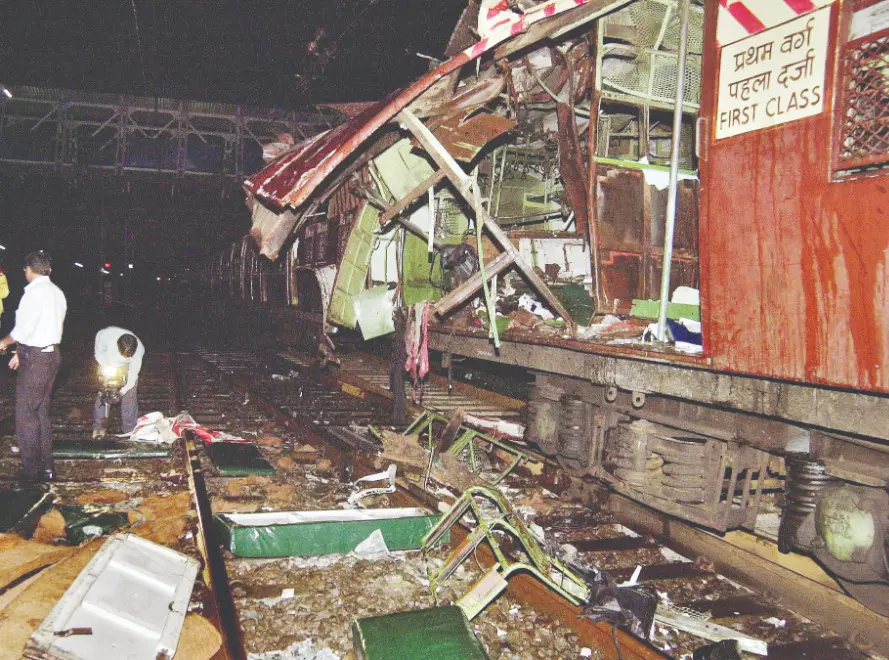Bombay HC acquits all 12 accused in 2006 Mumbai train blasts case

Mumbai: Nineteen years after coordinated bombings on Mumbai’s suburban trains claimed over 180 lives, the Bombay High Court on Monday acquitted all 12 individuals previously convicted in the case, citing major lapses in the prosecution’s investigation and expressing serious doubt over the authenticity of evidence presented during trial.
Delivering its 671-page verdict, a special bench comprising Justices Anil Kilor and Shyam Chandak concluded that the prosecution had “utterly failed” to prove the charges against the accused and that the evidence, including alleged confessions and witness accounts, lacked credibility.
“The prosecution has utterly failed to prove the case against the accused. It is hard to believe that the accused committed the crime,” the bench stated, ordering the immediate release of all 12 if they are not wanted in any other case.
The July 11, 2006, serial bombings, which targeted first-class coaches of Mumbai’s Western Railway during peak hours, had left more than 180 dead and hundreds injured. At the time, investigators alleged that the bombings were a result of a conspiracy hatched by members of the Students’ Islamic Movement of India (SIMI) in collaboration with operatives from Pakistan-based Lashkar-e-Taiba (LeT).
A special court in 2015 had sentenced five of the 12 men—Kamal Ansari (deceased in 2021), Mohammad Faisal Ataur Rahman Shaikh, Ehtesham Qutubuddin Siddiqui, Naveed Hussain Khan, and Asif Khan—to death. The remaining seven were given life sentences. Monday’s High Court ruling overturned all those convictions.
In a scathing critique of the investigative process, the court found the confessional statements inadmissible, citing indications that they were extracted through torture. “It is well known that, in most cases, police are in the habit of extorting confessions by illegal and improper means, including torture,” the judgement said.
The bench added that the confessions were “incomplete and not truthful,” and failed to clarify essential aspects such as the nature of the containers used to carry explosives or the triggering mechanism of the bombs. Further, the court pointed out that legal counsel had not been provided to the accused before or during the recording of their statements, rendering the process unreliable.
The court also flagged discrepancies in the physical evidence, questioning the handling and documentation of alleged recoveries, including explosives and circuit boxes. “The prosecution has failed to even bring on record the type of bombs used in the alleged crime,” the judges said, adding that the recovery evidence was insufficient to establish guilt.
Several prosecution witnesses were deemed unreliable, including taxi drivers and others who claimed to have witnessed the accused planting bombs or assembling explosives. “The evidence given by these witnesses is incredible and non-trustworthy,” the judgement noted.
The judges observed that significant prosecution witnesses were not examined, and that there were serious irregularities in sealing and maintaining the alleged recovered materials. “Creating a false appearance of having solved a case gives a misleading sense of resolution,” the court warned, adding that such actions undermine public trust and fail to eliminate the real threat.
Regarding the applicability of the Maharashtra Control of Organised Crime Act (MCOCA), the court said that the sanction to invoke the law was granted “in a mechanical manner without application of mind,” and ruled that MCOCA provisions were not applicable in this case.
Reacting to the verdict, Chief Minister Devendra Fadnavis said that the Maharashtra government will challenge the acquittal in the Supreme Court.
He described the high court verdict as shocking.
“I will go through the entire order. I have discussed with the lawyers, and the high court verdict will be challenged in the Supreme Court,” he told reporters.
All India Majlis-e-Ittehad-ul-Muslimeen (AIMIM) president Asaduddin Owaisi questioned the handling of the investigation. “Will the Maharashtra government take any action against the ATS officers who investigated the 7/11 case?” he posted on social media following the acquittals.
The High Court remarked that its decision was made solely in accordance with law and the evidence—or lack thereof—presented. “We have done our duty as per the responsibility cast upon us,” the judges said at the conclusion of the ruling.



